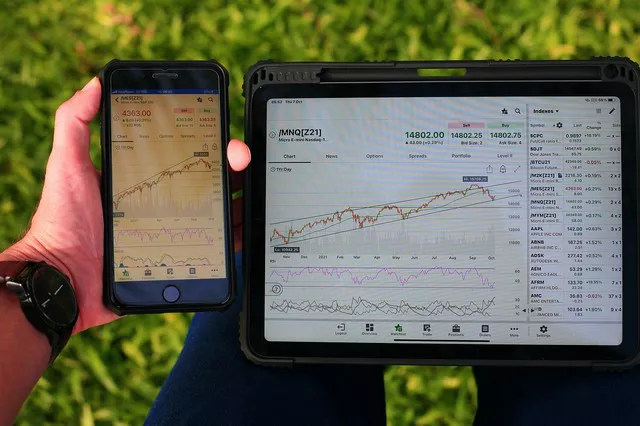In the world of finance, symbols play a significant role in simplifying complex concepts and instruments. The symbol for S&P futures is a prime example of this.
1. Introduction to S&P Futures
S&P futures are derivative contracts based on the Standard & Poor’s 500 Index, commonly referred to as the S&P 500. This index represents a basket of 500 large-cap U.S. companies’ stocks, serving as a benchmark for the overall performance of the U.S. stock market.
2. The Importance of Symbols
Symbols in financial markets serve as shorthand representations of various assets and instruments. They enable traders, investors, and market participants to quickly identify and refer to specific securities, helping streamline communication and trading activities.
3. Deciphering the S&P Futures Symbol
The symbol for S&P futures is a concise code that conveys important information about the contract. It typically consists of three parts: the root symbol, the month code, and the year code. For instance, if the symbol is “ESU21,” it signifies the E-mini S&P 500 futures contract expiring in September 2021.
4. Root Symbol
The root symbol in the S&P futures symbol identifies the underlying asset, in this case, the S&P 500 Index. Different futures contracts are associated with various root symbols, representing diverse asset classes such as commodities, currencies, and equity indices.
5. Month Code
The month code is a single-letter identifier that signifies the contract’s expiration month. Common month codes include “H” for March, “M” for June, “U” for September, and “Z” for December. This code allows traders to quickly determine when a contract matures.
6. Year Code
The year code is the last digit of the contract’s expiration year. In the example “ESU21,” the year code “21” indicates the contract expires in the year 2021.
7. The Role of Expiration
Understanding the expiration date is crucial when trading futures contracts. It’s the date when the contract comes to an end, and traders must decide whether to settle the contract or roll it over into a new contract with a later expiration date.
8. E-Mini S&P 500 Futures
The “E” in the symbol stands for “E-mini,” which refers to electronically traded futures contracts that are smaller in size compared to their standard counterparts. E-mini contracts allow retail traders and investors to access futures markets with lower capital requirements.
9. Leverage and Trading Opportunities
E-mini S&P 500 futures offer traders leverage, enabling them to control a larger position with a smaller amount of capital. This leverage can amplify both gains and losses, making risk management a critical aspect of trading.
10. Speculation and Hedging
Traders can use S&P futures contracts for various purposes. Speculators aim to profit from price movements, while hedgers use these contracts to manage risk associated with their existing investments in the stock market.
11. Understanding Market Trends
S&P 500 futures and their corresponding symbols provide valuable insights into market sentiment and trends. By analyzing trading volumes, open interest, and price movements, analysts can gauge investor sentiment and predict potential market direction.
12. Accessibility and Liquidity
The symbol for S&P futures, along with electronic trading platforms, has democratized access to financial markets. These contracts are highly liquid due to their popularity, allowing traders to enter and exit positions with ease.
Conclusion
In the intricate landscape of financial markets, symbols serve as gateways to understanding complex instruments and assets. The symbol for S&P futures, with its root symbol, month code, and year code, provides essential information about the contract’s underlying asset, expiration month, and year. This symbol is not just a string of characters; it encapsulates the potential for profit, the dynamic movements of the S&P 500 Index, and the intricate world of derivatives trading. As traders, investors, and market enthusiasts continue to engage with the financial markets, understanding symbols like the S&P futures symbol becomes an invaluable skill for informed decision-making and successful participation.


